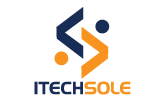
Technical SEO can make or break your website’s performance. It is the aspect that only a firm dealing in Technical SEO Solutions can understand and deal with. However it is also essential for you to take it into consideration. No matter if you are running an online law firm or ecommerce business, the following tips would help you alot.
Therefore, let’s dive into effective solutions that can boost your site’s visibility and user experience.
What are Technical SEO Solutions and Why are They Important?
Technical SEO refers to optimizing your site for search engine crawling and indexing. It’s not about content; rather, it’s about the backend elements that support your site. Consequently, ensuring your website is technically sound helps search engines understand and rank your content better.
Key Technical SEO Issues One Might Face
For your ease of understanding we are listing here some core technical issues regarding SEO solutions. These are the issues that any website can face online. By going through these aspects you will know about the Technical SEO Importance.
Speed Up Your Site
Website speed is crucial. Users and search engines both prefer fast-loading sites. Additionally, here’s how you can enhance your site’s speed:
- Compress images without losing quality. Furthermore, this helps in reducing load times.
- Reduce the number of requests by simplifying your site design. Similarly, a cleaner design loads faster.
- Store some data on users’ devices to reduce loading times. In addition, it improves the user experience.
- Gzip compression can significantly reduce the size of your files. Therefore, implement it for better speed.
- Aim for a server response time of under 200ms. Consequently, your site loads faster.
- CDNs distribute your content across various locations, speeding up delivery to users. Moreover, it ensures faster access for international users.
Mobile Optimization
With more people using mobile devices, your site must be mobile-friendly. Responsive design ensures your site looks good and works well on all devices. Additionally, tools like Google’s Mobile-Friendly Test can help you check and improve your mobile optimization. Here’s how:
Make your layout versatile, letting it change with screen sizes. Always try it on many devices. Make sure buttons and links are simple to click. Also, space them out well. It’s best to let your site match different devices through the right viewport settings.
This tactic works well for all businesses including Technical SEO For Law Firms. Give mobile users images that are just the right size. This results in faster load times on their devices.
Secure Your Site with HTTPS
Security is a top priority. HTTPS encrypts data between your site and users, protecting sensitive information. Moreover, search engines favor secure sites. To switch to HTTPS:
Get this from a reliable certificate authority. Check it’s valid and current. Stick to your hosting provider’s guidelines. Test it too, for correct setup. Make sure all your internal links switch to HTTPS. This side steps any security alerts.
Set up 301 redirects to guide traffic from HTTP to HTTPS. Don’t forget to refresh your external links to use HTTPS as well.
Fix Broken Links
Broken links frustrate users and harm your SEO. Therefore, regularly check and fix broken links to improve user experience and maintain your site’s authority. Tools like Ahrefs or Screaming Frog can help you identify these issues. Here’s what to do:
- Use tools to find 404 errors and dead links. Moreover, prioritize fixing high-traffic pages.
- Set up 301 redirects for valuable pages or remove links that no longer work. Additionally, consider replacing broken links with relevant alternatives.
- Ensure all internal links point to active, relevant pages. Moreover, check for outdated or incorrect links. This technique works well for Technical SEO Services for Ecommerce.
- Make link checking a regular part of your site maintenance. Consequently, you’ll catch issues early.
Optimize Your XML Sitemap
An XML sitemap helps search engines find and index your site’s pages. Additionally, make sure your sitemap is up-to-date and includes all important pages. Submit it to search engines via Google Search Console and Bing Webmaster Tools. Key tips for sitemaps:
Keep each important URL on your sitemap. Group them in a sensible way. Get rid of any URLs pointing to 404 pages or redirects. Keep up with your site map; check and update it frequently. The sitemap should mirror site updates so search engines are up-to-date with fresh content. For expansive sites, sitemap index files can tidy up multiple sitemaps. This boosts manage ability.
Implement Structured Data
Structured data, or schema markup, helps search engines understand your content better. This can improve how your pages appear in search results. Therefore, use tools like Google’s Structured Data Markup Helper to implement this on your site. Benefits of structured data include:
Improve your search results by using rich snippets for reviews, cooking directions, and events. As a result, they draw in more clicks. Rich snippets can increase the amount of times your result is clicked on from search results. Plus, they help your listings pop. Assist voice helps in grasping and passing on your content. Furthermore, this becomes vital as voice searches become more commonplace.
Improve Site Architecture
A well-structured site is easier for search engines to crawl and index. Additionally, good site architecture enhances user experience and helps with SEO. Tips for improving site architecture during Technical SEO For Business Websites are as follows:
- Organize your content in a logical, hierarchical structure. Additionally, make sure it’s intuitive for users.
- An HTML sitemap helps users navigate your site. Moreover, it provides a clear overview of your site’s structure.
- Ensure your menu is easy to use and understand. Furthermore, include links to key sections of your site.
- Link related content to help users and search engines discover more of your site. Consequently, this improves crawlability.
Canonical Tags
Canonical tags help prevent duplicate content issues by specifying the preferred version of a webpage. Proper use of canonical tags ensures search engines understand which version of a page to index. Steps to use canonical tags:
Find pages with similar or identical content. Additionally, avoid creating unnecessary duplicates. Use tools like Google Search Console to verify your canonical tags. Moreover, ensure they’re correctly applied.
Robots.txt File
The robots.txt file tells search engines which pages or sections of your site they should not crawl. Proper configuration of this file helps manage crawler access and protects sensitive information. Key tips for robots.txt:
- Prevent search engines from crawling pages like admin panels. Additionally, exclude duplicate content areas.
- Ensure critical content is accessible to search engines. Moreover, prioritize high-value pages.
- Keep your robots.txt file up-to-date with your site’s structure. Consequently, you’ll maintain proper crawler access.
Call Itechsole for Real-Time Technical SEO Solutions
Looking to supercharge your website’s performance? Don’t wait! Call Itechsole today for real-time technical SEO solutions that deliver results. Our expert team specializes in optimizing your site for speed, mobile compatibility, security, and more. With ITechSole, you’ll experience faster load times, higher search rankings, and an overall improved user experience.
We use cutting-edge tools and techniques to ensure your site is always ahead of the curve. Whether it’s fixing broken links, implementing structured data, or enhancing your site architecture, we’ve got you covered. Don’t let technical issues hold your site back. Reach out now and see the difference our real-time solutions can make. Call us or visit to get started. Let Itechsole elevate your online presence today!

